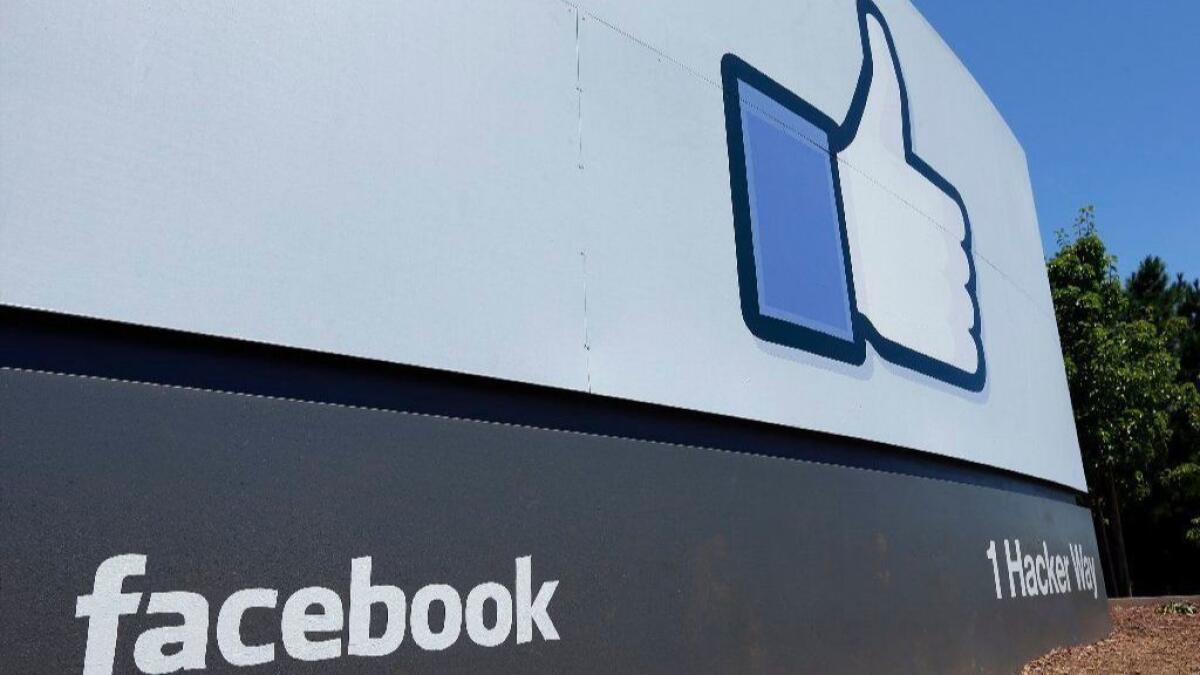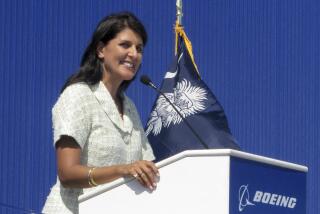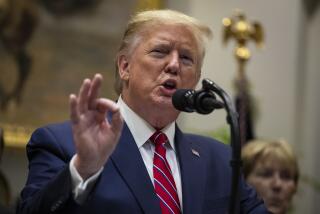Facebook removes fake accounts tied to Indian political parties, Pakistanâs military

Reporting from Islamabad, Pakistan â Facebook said Monday that it had removed hundreds of pages and accounts linked to government and political organizations in India and Pakistan that misled users about their identities, part of the companyâs effort to fight allegations that its platform is used to spread misinformation.
The crackdown targeted accounts that engaged in âcoordinated inauthentic behavior,â Facebookâs term for networks of users who work together to disseminate messages while concealing who they are.
The fake Indian accounts were linked to the countryâs two leading political parties â Prime Minister Narendra Modiâs Bharatiya Janata Party and the opposition Indian National Congress â both of which have trafficked in rumors and half-truths in the run-up to this monthâs general elections.
In Pakistan, the company said it had removed 103 pages, groups and accounts on Facebook and Instagram that it traced to the Pakistani militaryâs communications wing, Inter-Services Public Relations, or ISPR.
The users created fake accounts to run military fan pages, news pages, and pages aimed at Kashmir, the Himalayan territory that is the subject of a long-running and bloody border dispute with India.
âAlthough the people behind this activity attempted to conceal their identities, our investigation found that it was linked to employees of the ISPR,â Nathaniel Gleicher, Facebookâs head of cybersecurity policy, said in a statement.
About 2.8 million Facebook accounts followed one or more of these pages, Gleicher said. The pages included messages praising Pakistanâs âbig heartâ for releasing an Indian pilot shot down during a recent border skirmish, and mocking Indiaâs air force as a âconsistent failure.â
During the rival nationsâ hostilities in February, fake news flew on both sides of the border, amplified by social media as well as mainstream news channels caught up in patriotic fervor. Gleicher said that the company removed the pages not for false content but because âwe donât want our services to be used to manipulate people.â
A Facebook employee who was involved in the removals, but was not authorized to speak to the media, said that although the accounts were linked to the military, âwe are not trying to say that ISPR directed them [to spread] false information.â
Pakistanâs military did not immediately comment on Facebookâs announcement.
In India, the company said it removed 15 pages and accounts that it traced to Silver Touch, an information technology consultancy.
According to a recent investigation by AltNews, an independent Indian website that debunks social media hoaxes, Silver Touch is based in Prime Minister Modiâs home state of Gujarat and has developed apps for Indian government entities, including Modiâs official app, which has more than 10 million Android downloads.
Silver Touchâs âThe India Eyeâ Facebook page, among those removed in the crackdown, frequently spread misinformation about the governmentâs political opponents, including the Congress Party, to nearly 2 million followers, AltNews found.
Facebook also took down 687 pages and accounts it traced to the Congress Partyâs cyber branch. Those accounts were followed by 206,000 users, the company said.
Previous crackdowns by Facebook have resulted in the removals of pages from Iran, Myanmar, Russia and other countries.
The Menlo Park, Calif.-based social media giant has faced intense criticism for not doing enough to halt the spread of fake news, particularly in countries where its user base has skyrocketed but digital literacy remains relatively low.
The company has rolled out fact-checking initiatives and formed partnerships with news organizations in countries such as India and Indonesia, both of which are in the midst of heated election campaigns.
Last week Facebook also introduced rules requiring advertisers buying political ads ahead of upcoming European Union elections to prove they are located in the country whose users they are targeting, a move the company said would help prevent foreign interference.
The Facebook-owned messaging platform WhatsApp, with 200 million users in India, has come under particular fire after dozens were killed in mob violence linked to social media rumors.
WhatsApp has since imposed limits on forwarded messages and launched an awareness campaign to educate Indians to think twice before sharing unverified content.
Gleicher said that disguising usersâ identities âgoes against what people expect on Facebook and it violates our policies.â
âThis is why we continue to invest in people and resources to improve the technology we use to detect this type of harmful behavior,â he said, âand we will continue to take action on an ongoing basis to address it.â
Special correspondent Sahi reported from Islamabad and Times staff writer Bengali from Singapore.
More to Read
Sign up for Essential California
The most important California stories and recommendations in your inbox every morning.
You may occasionally receive promotional content from the Los Angeles Times.











